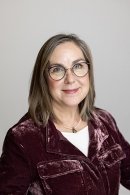Saint Martin's University was founded in 1895 by monks of the Roman Catholic Order of Saint Benedict. The Order, the oldest in Western Civilization, was founded by Saint Benedict of Nursia in about 528. Saint Martin's first enrolled boys and young men between the approximate ages of 10-20. The new school admitted its first student on Sept. 11, 1895. By 1897, 29 students were attending Saint Martin's. College level courses were added in 1900 and, in 1940 Saint Martin's became a four-year accredited, baccalaureate-granting institution. The College became coeducational in 1965. The Division of Education programs were established in the 1970's for secondary education. Saint Martin's College became Saint Martin's University in 2005; the Division of Education became the College of Education in 2006. The education programs now include undergraduate programs in elementary, secondary, and special education; two graduate degrees; and 24 endorsements. Programs are located at four sites-the Lacey main campus and three extension sites (Ft. Lewis Army Post, McChord Air Force Base, Clover Park School District)-all within a 40 mile radius of the Lacey campus.
The College of Education and Counseling has bachelor's and master's degree programs, and non-degree certification-only programs. Teacher certification may be completed as part of a bachelor's degree, independently after the baccalaureate is complete, or as part of the master's degree. School counselor certification is completed as part of a Master's of Education (MED) degree, or as an Education Staff Associate certification. School administrator (principal or program administrator) certification is completed as part of an MED degree, or as certification-only. All teacher candidates must complete two endorsements. Saint Martin's University has redesigned its education programs in response to the national and state reform efforts. The programs have adapted to the performance-based emphasis, while maintaining academic excellence and the flexibility to meet student needs. Individuals completing our programs are qualified for recommendation for residency (first level) and professional (second level) certification from Washington State.

